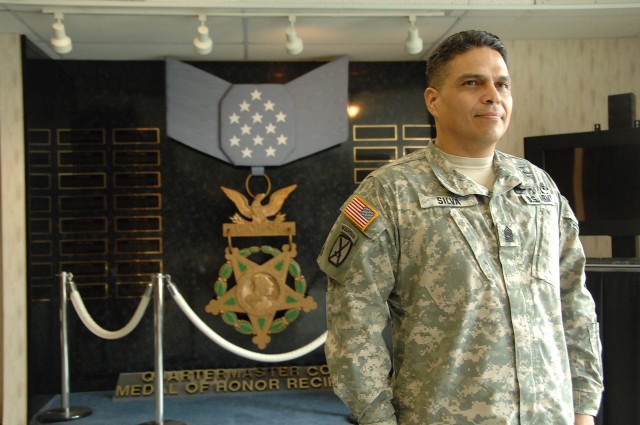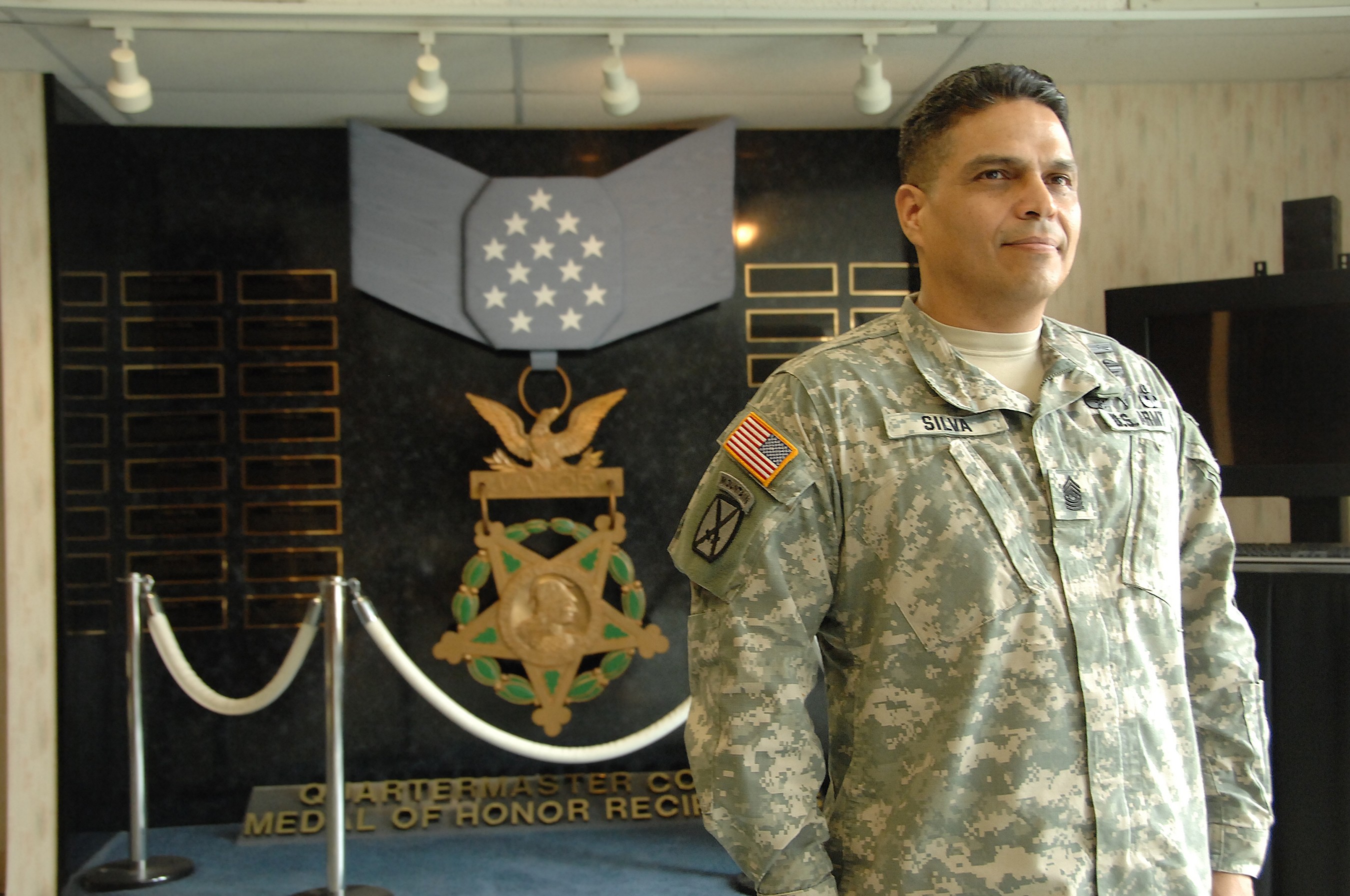
Fort Lee, Va. (Feb. 28, 2008) Command Sgt. Maj. Jose L. Silva, U.S. Army Quartermaster Center and School, remembers a time when quartermasters were just quartermasters. He began his career in the Quartermaster Corps as a fueler in 1986, having reclassified from the infantry.
"For the most part, we were just seen as an asset, we were not really the heroes or the 11Bs (infantrymen)," Silva said. "We took a backseat instead of being a driver."
The role of the quartermaster back then was strictly to support the war fighter, Silva said. But that's changed.
"We are still supporting the war fighter, but now we are all war fighters. We train to become war fighters," said the quartermaster regimental command sergeant major.
The training for quartermasters prior to Operations Iraqi Freedom and Enduring Freedom consisted primarily of technical type skills in the field.
"We were dependent on others helping us fight to survive, now we have developed the skills to accomplish that," he said.
During a deployment to Afghanistan in 2001, Silva saw how combat service support Soldiers were having to fill the role of base operations and convoy security.
"Those were roles that were new to them and that's when I first noticed the need for improving skills of CSS Soldiers," he said. "The skills of a combat role became a must."
Silva noted how there are now food service specialists who are training on how to conduct combat logistics patrols. Advanced individual training Soldiers engage in convoy live fire exercises and all the other warrior tasks and battle drills.
But these changes were not implemented easily, he said.
"Changing the culture was the first challenge," he said. "We began training on new things like clearing rooms, but some leaders were wondering why they were training on that."
Silva said that in the current theater of operations, quartermasters were going into harm's way.
"There is no rear area, no safe place (to operate in)," he said.
The changes in the training and thinking of the quartermaster had to be improved upon quickly. Silva's role at the time was to assess their current level of training and oversee the adoption of a new set of war-fighting skills.
Not only did the AIT courses have to be expanded, the Noncommissioned Officers Academy and the permanent party trainers also had to be updated on their skills in order to lead. That involved implementing a vision that wasn't immediately embraced.
"When it comes to vision, there are three ways to instill it. You can state it and everybody responds; you can sell it; or you can coerce it. I had to do a little bit of all three," he said.
It's normal for any organization to resist change, said Silva, but it's the job of leaders to make change happen.
Silva said he was pleased to have been a part of that major historical transition.
"The future is going to be better as a result of the changes," Silva said.
But the future for Silva is less clear for those who might be wondering what he will do next after retiring March 4..
"I don't believe in bad luck but back home they say, 'No le digas a nadien de tus planes,' which means 'don't tell anybody about your plans.' They might not pan out," he said.
In the meantime, he'll move back to Clarksville, Tenn., where he owns a house. He'll continue to practice Arabic, which he has been studying for the past two years. For him, education does not end upon competition of a degree.
"We can't be complacent with what we know because once we do that, we cut ourselves from growing," he said. "I believe that continuous education is a key to being a better Soldier and better person."
When he reflects on the past few years he's held the top enlisted job of the Quartermaster Corps, Silva said it has been a humbling experience having had many good opportunities to exercise leadership in a team environment.
He's not sure what sort of legacy he leaves behind, but he said he'll be satisfied if people just remember him when they browse the history of the Quartermaster Corps.

Social Sharing